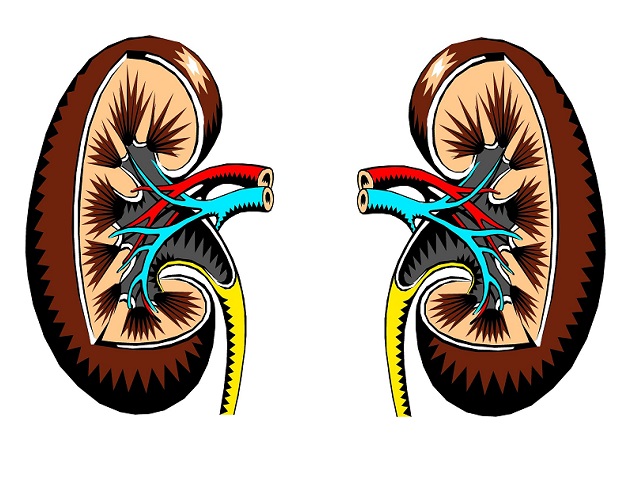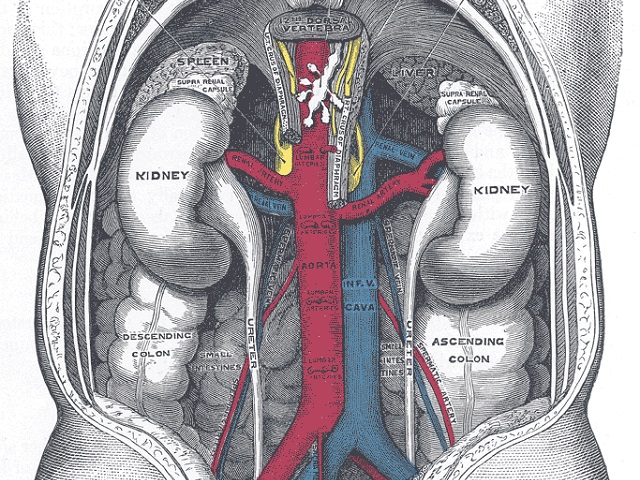7 Signs You May Have Glomerulonephritis -- Symptoms, Causes, Effects, Treatment and Prevention
Glomerulonephritis is a condition characterized by inflammation and damage to the glomeruli, which are the filtering units of the kidneys. It can be acute or chronic and is typically caused by immune system disorders, infections, or underlying medical conditions. Here is an explanation of glomerulonephritis, along with the symptoms, diagnosis, causes, effects, treatment, and prevention:
Symptoms of Glomerulonephritis:
The symptoms of glomerulonephritis can vary depending on the type and severity of the condition. Common symptoms include:
- Hematuria: Blood in the urine, which may appear pink, red, or cola-colored.
- Proteinuria: Excessive protein in the urine, leading to foamy or frothy urine.
- Edema: Swelling, especially in the face, hands, feet, and abdomen, due to fluid retention.
- Hypertension: High blood pressure, which can be a result of kidney damage.
- Decreased urine output: Reduced frequency and volume of urination.
- Fatigue and weakness: Generalized tiredness and lack of energy.
- Abdominal pain: Discomfort or pain in the abdominal area.
Diagnosis of Glomerulonephritis:
Diagnosing glomerulonephritis involves the following assessments:
- Medical history and physical examination: Evaluation of symptoms, medical history, and risk factors.
- Urine tests: Analysis of a urine sample to check for the presence of blood, protein, and other abnormalities.
- Blood tests: Measurement of kidney function, blood cell counts, and levels of antibodies and complement proteins.
- Kidney biopsy: Removal of a small sample of kidney tissue for microscopic examination to determine the underlying cause and severity of the condition.
Causes of Glomerulonephritis:
Glomerulonephritis can be caused by various factors, including:
- Infections: Bacterial or viral infections, such as streptococcal infections, hepatitis B or C, or HIV, can trigger glomerulonephritis.
- Immune system disorders: Conditions like lupus, IgA nephropathy, and vasculitis can cause inflammation and damage to the glomeruli.
- Genetic factors: Certain genetic disorders, such as Alport syndrome or thin basement membrane disease, can lead to glomerulonephritis.
- Medications and toxins: Some medications, nonsteroidal anti-inflammatory drugs (NSAIDs), and exposure to certain toxins can contribute to glomerular damage.
Effects of Glomerulonephritis:
Glomerulonephritis can have several effects on kidney function and overall health, including:
- Reduced kidney function: Inflammation and damage to the glomeruli can impair the kidneys' ability to filter waste and maintain fluid and electrolyte balance.
- Proteinuria and hypoalbuminemia: Increased protein leakage into the urine can result in low levels of protein (albumin) in the blood, leading to fluid accumulation in tissues.
- Hypertension: Kidney damage can cause or contribute to high blood pressure, which can further worsen renal function.
- Kidney failure: In severe cases, glomerulonephritis can progress to end-stage kidney disease, requiring dialysis or kidney transplantation.
Treatment of Glomerulonephritis:
The treatment of glomerulonephritis aims to reduce inflammation, manage symptoms, and slow down the progression of kidney damage. Treatment options may include:
- Medications: Depending on the underlying cause and severity of the condition, medications such as corticosteroids, immunosuppressants, and angiotensin-converting enzyme (ACE) inhibitors may be prescribed.
- Dietary changes: Restricting sodium and protein intake may be recommended to manage edema and reduce kidney workload.
- Blood pressure management: Medications to control high blood pressure and reduce stress on the kidneys may be prescribed.
- Supportive care: Monitoring fluid and electrolyte balance, managing complications, and addressing nutritional deficiencies.
Prevention of Glomerulonephritis:
Preventing glomerulonephritis involves minimizing the risk factors and addressing underlying conditions. Some preventive measures include:
- Prompt treatment of infections: Timely and appropriate treatment of bacterial or viral infections can help prevent glomerulonephritis.
- Good hygiene practices: Maintaining proper hygiene and avoiding exposure to potential sources of infections can reduce the risk.
- Managing underlying conditions: Effective management of immune system disorders, such as lupus or vasculitis, can help prevent kidney damage.
It is important to consult with healthcare professionals for an accurate diagnosis, personalized treatment plan, and advice specific to individual circumstances.
References:
National Kidney Foundation. (2021). Glomerulonephritis. Retrieved from https://www.kidney.org/atoz/content/glomerul
Mayo Clinic. (2020). Glomerulonephritis. Retrieved from https://www.mayoclinic.org/diseases-conditions/glomerulonephritis/symptoms-causes/syc-20355705


















